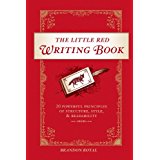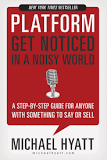Blogging From End to Beginning

“Strategically, the summary or conclusion should come at the beginning of an expository piece, not at the end,” explains Brandon Royal in The Little Red Writing Book. Royal is referring to a top-down approach, where readers understand from the beginning what the main idea of the piece is, then are given the supporting facts or details.
The author compares two kinds of writing:
- Expository writing (the primary purpose is to explain and inform)
- Creative writing (the primary purpose is to persuade or entertain)
Blog content writing, I suppose, is a blend of both expository and creative. Certainly one motive for business owners or professional practitioners in maintaining their blog is to persuade readers to use their products or engage their services. Yet informing readers and answering questions is a primary goal as well.
A well-conceived blog post will proactively interpret information in ways that are not only understandable, but usable by readers, “unwrapping” and drilling down to the core of the message. But, how are searchers to know they’ve come to the right place? Once readers have actually landed on your blog, it takes a “grabber” to hold interest and keep them moving through the information (That’s where the concept of putting the summary at the beginning instead of at the end comes in.)
Unlike novelists, we blog content writer simply cannot afford to focus on arousing curiosity by being enigmatic in our titles and in our opening lines. If we fail to assure readers that they’ve come to the right place to find the information that satisfies the needs that brought them online to find answers, they’ll bounce away from our site before we get to share our thoughts!
The way Brandon Royal sees it, “We should think about giving the reader a destination first before giving him or her the directions on how to get there!” Blog post opening lines set the tone and arouse curiosity, but in business blogs, it’s best not to sustain a sense of mystery for very long!





Follow us online!